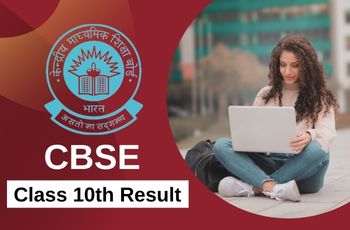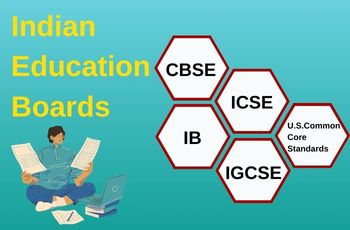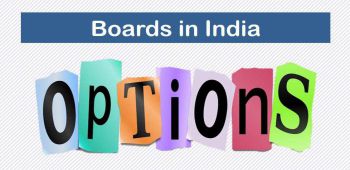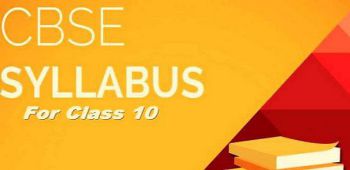Even with the introduction of various other boards in India, CBSE, ICSE, and State Boards remain the only well-known boards across India. It is a great dilemma for the parents to decide which board to put their child in. A lot of different things come into play when deciding which board to choose for your child. Now we can’t make the decision for you but we can surely help you in making your decision. So, read the complete article and you will get the required insight into making the decision.
The Pros and Cons of each Board are listed which include facts about the curriculum, recognition, extra-curricular activities, quality of teachers, etc. Read them and understand them and you will get a clear idea of the differences these boards have in them.
CBSE
The CBSE board is undoubtedly the most popularly known board in India due to many reasons. The students studying in CBSE boards are imagined to be well versed in etiquettes and great command of English. While this may be true to some extent, the condition varies from school to school and State to State.
Pros
- The biggest reason one should be seeking admission in a CBSE board school is the fact that two of the biggest entrance exams for undergraduate courses JEE (for engineering) and NEET (for medical) are conducted by CBSE
- Though being in CBSE board doesn’t guarantee your success in these exams, it surely gives you an upper hand in understanding and getting used to the kind of efforts you need to put into the exams to crack them (yes you still need to work hard like the students from ICSE and State Boards)
- The curriculum in bent towards developing the skills like concept application and problem-solving
- Hence, the students learn to apply their knowledge to various situations and it also ensures the quality of education
- CBSE board is quite tough and hence they have no problem in adjusting to any board within or outside India even in countries like United States, United Kingdom, Germany, Singapore to name a few
- The syllabus includes quality English and hence the students have great command over the language and do very well with communication overseas
- The students develop exceptional problem solving and logical skills which help them in their professional lives
- Extra-curricular activities are given huge importance, although the level to which they are taken depends on the school
Cons
- There are many schools which focus only on subjects like Maths and Science with the aim to have excellence in their entrance exams. As such very less attention is given to subjects like English and humanities
- Many schools are unable to get quality teachers for the toughness level of the Board (mostly, elite schools which charge heavy fees are the only once able to compete)
- The tuition facilities which the child may need is highly dependent on your location and in states like Tamil Nadu where institutes prefer their State Board, tuition facilities for CBSE Board are hard to find
- Even if extra-curricular activities are a part of the curriculum, very few schools take active role in them and only elite schools make the required facilities available to the students
- Due to the toughness of the syllabus and the strictness in the assessment of the papers, the students score relatively less and face problems in admission to institutes which prefer State Boards (especially in Tamil Nadu) over CBSE
CISCE
The CISCE curriculum popularly known as the ICSE Board is one of the toughest Boards not just in India but also the whole world. CISCE affiliated schools are present in Dubai, Sharjah, Indonesia, Singapore and so if your work forces you to shift to new countries often, you won’t have to worry about the change in the curriculum. Even if you don’t find CISCE School, your child won’t have problems adjusting to the curriculum.
Pros
- The curriculum is designed in such a way that it improves the content and application awareness of the concepts
- Practical and lab work is given equal importance with theory papers
- Since CISCE affiliated schools mostly charge hefty fees (which is a CON in itself), one can guarantee the quality of teachers available in these schools
- The curriculum includes subjects like arts, dance, and music which guarantees the all-round development of the students
- The Board gives huge importance to extra-curricular activities and hence the students have great development not just academically but in many other fields as well
- In classes 9,10,11,12, the Board offers your choice of subjects to some extent and provides flexibility and choices to the students
Cons
- The schools charge very hefty fees which may be a little too much for some people
- Being one of the toughest curricula in the world, aided with the fact that the toughest paper corrections happen in this Board, the results of the board are not as high as that of CBSE and State Board
- As such, the students might face difficulties in admission to many Institutes in some States like Tamil Nadu
- The curriculum is very demanding on the students which results in them getting very little time for entrance exams like JEE and NEET
- Many students shift to CBSE or State Boards in their 11th and 12th standards in order to get time for JEE and NEET preparations
- The availability of good coaching centers for the Board is very scarce but it depends on city to city
- Due to the demanding nature of the curriculum, some students develop the habit of just memorizing the concepts
State Boards
Even if all the State Boards are mostly categorized as a single board, there are about 30 State Boards in India with each one varying slightly or drastically with one another in terms of toughness and the syllabus. Even if the condition varies from State to State, overall, the State Boards are the least demanding on the students.
Pros
- The talent of the student places an important role in the development of the student as an individual and as a professional
- The syllabus and curriculum are the least demanding and hence the students get enough time to invest in other useful activities
- The tuition centers and coaching classes for State Boards are the most easily available, though it varies slightly from place to place and no guarantee about their quality can be given
- State Board students get the most time to prepare for their entrance exams like JEE and NEET
- Even if the curriculum is the least demanding on the students in India, it is enough to compete at the international level and hence students from India have the least difficulty in countries like US, UK, etc
- Most Universities give the greatest importance to State Board students in their admission procedures
Cons
- The Boards have the least priorities for extra-curricular activities and try but don’t achieve the all-round development of the students. As such, the complete development of the students depends on the students and the school to some extent
- Most State Boards have the least qualified and unskilled teachers though it changes from State to State, city to city and school to school
- State Board students require putting the most efforts in order to crack entrance exams like JEE and NEET
The Answer
The development of the child most importantly depends on the efforts put in by the student and his/her parents. As such, the Boards are just a means to get the efforts of the students and parents into use. Parents should focus on their efforts and guarantee the quality of teachers and facilities available to their pupil. While deciding the Board, the parents should check the reputation of the available schools and the coaching centers (if their child needs special attention in a particular subject). They should also cross-check the admission criteria for the Universities they dream to put their child in (still the final choice of the college and stream should be made by the child).





















Comments